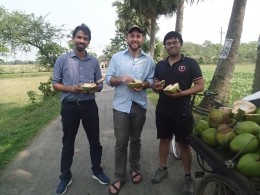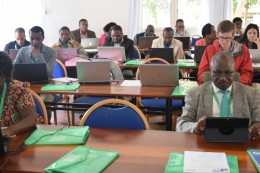
Coastal Bangladesh is sinking. To protect the region and its inhabitants, embankments were built around the most vulnerable delta islands in the 1960s, creating polders. Though the polders have provided protection to the region’s eight million inhabitants, they have created difficulty for the area’s farming families. Graduate student Aaron Shew is working to change that.
According to Shew, the low farm productivity stems from water management issues. The nature of the polders requires water to be managed with sluices. In the dry season, the lack of fresh water in the rivers makes water sources too salty. In the rainy season, flooding wreaks havoc on crops.
“In the dry season, more than 90 percent of the farmland on the polders is fallow,” Shew, an environmental dynamics doctoral student, said. “In the rainy season, rice crops frequently become submerged in water and die before they can be harvested.”
The Distinguished Doctoral Fellow believes these problems could be solved by finding crops better suited to the polders’ unique environmental conditions. Continue reading “Graduate Student Seeks to Cultivate New Farming Practices in Bangladesh”



